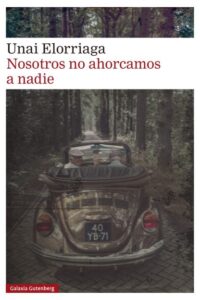
Original Language: English
Títutulus original: The Death of the Lion
Translation: Eduardo Lago
Year of publication: 1894
Valoración: Read
I guess my blog colleagues will agree, but perhaps it is something that our readers can escape: sometimes you don’t feel like reviewing a book. It happens, or at least it happens to me, when the book is neither fu nor Fa, not despicable but has not left an important mark (there would perfectly fit an expression as usual as ‘little remarkable’), or when one, for some reason, does not find too many things to tell apart from making a vulgar synopsis. But this kind of slight discomfort is more evident when I read an author considered more or less classic, which is in the canons and therefore I should give me interesting things, but who I do not finish finding the attractive point. All this could be very good to be the conclusion of the review, but it is forced to tell something else, and to see if I end up discovering the reason for my lukewarm, indifference, disappointment.
The death of the lion (‘león’ He has in the Anglo -Saxon world the colloquial meaning of celebrity, or something like that) recounts the relationship between a young journalist and an admired writer although still somewhat far from success. The first has been entrusted to the author, but his intention to make a more personal than literary report is vetoed. The young man, prey to the admiration for the artist, will dedicate himself to trying to protect and preserve his values and personality when he realizes that there are people who try to make him a character of social life, the typical celebrity that gives luster to parties and meetings. Somehow, it is the dissociation between the public and the private, the writer and the person behind.
All this that I have told, which is a bit what this short novel gives of itself, takes James enough pages, in which it shows a wiring prose with which he tries at every step to deepen the psychology of the characters, more in their reflections than in their actions, which are rather few, and forces the reader to stop in each sentence to understand and relate. I do not believe that James is one of those authors who write for themselves, which is usually a reason for illegibility, but like the writer, the artist in a broad sense, he has every right to expect an effort of his audience, he has the same right to refuse to do so. There is therefore the notice that, if we do not feel like entering that game, reading, at least in view of the book I mean, it can be little or nothing gratifying.

The specimen that is completed with The happy cornera story that seems lower although it has been more attractive to me. With some gothic dyes, James presents an individual who periodically visits the old family home until he begins to suspect that he houses a strange presence. Inexplicable shadows, subtle sounds and doors that were left closed and appear open give way to a psychological terror crescendo in which faint memories gather with a confusing sensation of personality unfolding.
All of which in turn originates in the experience of James himself, American based in Europe and later British nationalized, who moves the character the dual experience of two worlds that he considers very different. When its protagonist returns to New York, the classic doubt about what was not lived is raised: what would have been of not having emigrated, or not having returned. Even if you abandoned a land (we could include any other circumstance, the end of a relationship, for example) something of us remains in the place of origin, that reflection of what was perhaps in the family home. All under a well -achieved atmosphere when the author strips, even partially, of the delinquent and somewhat baroque language that weighs so much in the previous story. It is surely on this path that James managed to avoid this disconnection with the reader that I have believed to detect in the first of the stories, and it seems that it is appreciated in some of his other works reviewed in this blog, and that they can be consulted here.
All reviews about Henry James at Ulad: here
Source: https://unlibroaldia.blogspot.com/2025/04/henry-james-la-muerte-del-leon.html


